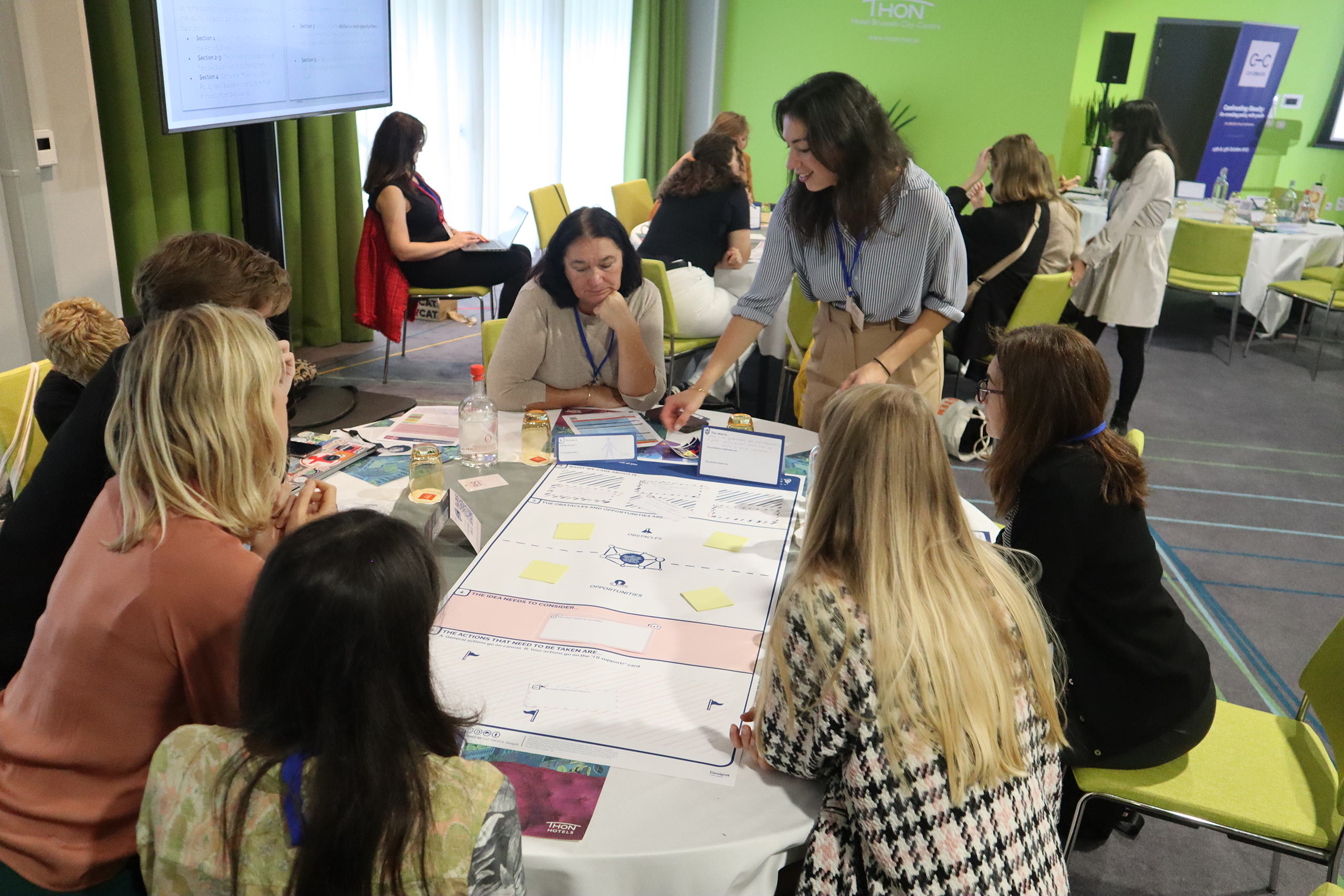Sweden’s Deputy Prime Minister Isabella Lövin said we need nothing less than a revolution to transform our global food system.
Speaking at the EAT Stockholm Food Forum today, Lövin outlined three points of transformative action needed to solve one of our time’s biggest challenges: How to sustainably feed a healthy diet to a future population of 10 billion by 2050.
Firstly, societies need to become fossil free as climate change is a “major threat” to food production globally, according to Lövin. Oceans must also be safeguarded so that they are “part of a sustainable food system and not a place where we dump our garbage,” she said. Finally, there must be sustainable food production on land based on respect for nature and animals.
“There is very much at stake,” said Lövin, who is also Sweden’s minister for international development cooperation and climate. “My main conclusion and message here is that we need nothing less than a revolution. We need to steer our planet in a new direction and a new development paradigm that has the health of the planet and its inhabitants center.”
More than 600 delegates from over 50 countries are gathered at the two-day EAT Stockholm Food Forum. This year’s forum is for the first time jointly hosted by the Swedish government and EAT.
Isabella Lövin is a politician and member of Sweden’s Green Party. She has served as the country’s minister for international development cooperation and climate since 2014 and is also Sweden’s deputy prime minister. Prior to that, Lövin was a member of the European Parliament, focusing on fisheries issues. An author and journalist by profession, Lövin was awarded Stora Journalistpriset in 2007.
Remaining one step
ahead
of the curve.
Five Youth Leaders Who Will Change the World
To celebrate International Youth Day, we are spotlighting the leaders of tomorrow. From India to the US and New Zealand to South Africa, young people are rising to demand greater action on climate change, biodiversity loss, hunger, malnutrition, food waste, plastic pollution, and more.

Reflecting on five years of policy co-creation with youth: the CO-CREATE project
After five years, the CO-CREATE research project “Confronting Obesity: Co-creating policy with youth” has come to end. Reflections on the project’s achievements and sustained impact are shared.
